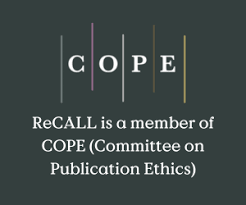WORK-LIFE BALANCE AND JOB SATISFACTION: EVIDENCE FROM THE INDONESIAN BANKING SECTOR
Keywords:
work-life balance, job satisfaction, banking sector, human resource managementAbstract
This study investigates the relationship between work-life balance (WLB) and job satisfaction (JS) within the Indonesian banking sector, an industry characterized by high performance demands and rapid digital transformation. Using a quantitative design, data were collected from 400 employees across state-owned and private banks through validated instruments measuring WLB and JS. Descriptive statistics, Pearson correlation, and regression analysis were employed, complemented by thematic analysis of qualitative responses.
The findings reveal a strong positive correlation between WLB and JS (r = 0.65, p < 0.05). Employees with access to flexible work arrangements and supportive organizational cultures reported significantly higher levels of satisfaction compared to those under rigid structures. However, the results also highlight demographic variations: younger employees valued career advancement and compensation as strongly as WLB, suggesting that balance alone does not guarantee satisfaction. Qualitative evidence further indicates that managerial support and cultural norms—particularly those emphasizing long working hours—remain critical determinants of employee well-being.
This study contributes to the literature by extending empirical evidence of the WLB–JS nexus to the Indonesian banking context, which has been underrepresented compared to Western economies. Practically, the findings underscore the need for banks to adopt holistic human resource strategies, integrating flexible policies, wellness programs, and career development pathways. For policymakers, the results highlight the importance of regulatory frameworks that foster sustainable work environments. By aligning employee well-being with organizational resilience, WLB emerges as both a driver of job satisfaction and a source of competitive advantage in the financial sector.
References
Braun, V., & Clarke, V. (2006). Using thematic analysis in psychology. Qualitative Research in Psychology, 3(2), 77–101. https://doi.org/10.1191/1478088706qp063oa
Budiarto, A. (2022). The impact of remote work on employee satisfaction in Indonesian banks. Journal of Banking and Finance, 15(2), 45–56.
Cohen, J. (1992). A power primer. Psychological Bulletin, 112(1), 155–159. https://doi.org/10.1037/0033-2909.112.1.155
Creswell, J. W. (2014). Research design: Qualitative, quantitative, and mixed methods approaches (4th ed.). Sage Publications.
Deloitte. (2022). Workplace trends in banking: A focus on employee engagement. Deloitte Insights. https://www2.deloitte.com/insights
Dillman, D. A., Smyth, J. D., & Christian, L. M. (2014). Internet, phone, mail, and mixed-mode surveys: The tailored design method (4th ed.). Wiley.
Field, A. (2013). Discovering statistics using IBM SPSS Statistics (4th ed.). Sage Publications.
Fowler, F. J. (2014). Survey research methods (5th ed.). Sage Publications.
Greenhaus, J. H., & Allen, T. D. (2011). Work–family balance: A review and extension of the literature. Journal of Management, 37(1), 17–52. https://doi.org/10.1177/0149206310382452
Greenhaus, J. H., & Allen, T. D. (2011). Work–family balance: A review and extension of the literature. Journal of Management, 37(1), 17–43. https://doi.org/10.1177/0149206310387000
Haar, J. M., Russo, M., Suñe, A., & Ollier-Malaterre, A. (2014). Outcomes of work–life balance on job satisfaction, life satisfaction, and mental health: A study across seven cultures. Journal of Vocational Behavior, 85(3), 361–373. https://doi.org/10.1016/j.jvb.2014.08.010
Haar, J. M., Sune, A., Russo, M., & Ollier-Malaterre, A. (2019). A cross-national study on the antecedents of work–life balance from the fit and balance perspective. Social Indicators Research, 142(1), 261–282. https://doi.org/10.1007/s11205-018-1875-6
Judge, T. A., Weiss, H. M., Kammeyer-Mueller, J. D., & Hulin, C. L. (2017). Job attitudes, job satisfaction, and job affect: A century of continuity and change. Journal of Applied Psychology, 102(3), 356–374. https://doi.org/10.1037/apl0000181
Kalliath, T., & Kalliath, P. (2012). Work–life balance: A review of the meaning of the balance construct. Journal of Management & Organization, 18(6), 788–805. https://doi.org/10.1017/jmo.2012.66
Locke, E. A. (1976). The nature and causes of job satisfaction. In M. D. Dunnette (Ed.), Handbook of industrial and organizational psychology (pp. 1297–1343). Rand McNally.
Mauliansyah, H., & Fadhli, R. (2025). Analisis faktor dominan dalam pelaksanaan sistem pengendalian intern pemerintah pada satuan kerja keuangan Polda Aceh. BE-HISZ, 2(1).
Mauliansyah, H., Anam, B. S., & Umar, Z. (2024). Pengaruh karakteristik CEO, komisaris independen dan kualitas audit terhadap penghindaran pajak pada perusahaan otomotif dan komponen yang terdaftar di Bursa Efek Indonesia periode 2016-2020. BE-HISZ, 1(2).
Mauliansyah, H., Umar, Z., & Fata, A. (2023). Pengaruh profitabilitas, likuiditas, dan ukuran perusahaan terhadap kualitas laba pada perusahaan manufaktur sektor tekstil dan garmen yang terdaftar di Bursa Efek Indonesia periode 2018–2020. Jurnal Akuntansi Muhammadiyah, 13(1), 1–15.
Otoritas Jasa Keuangan (OJK). (2021). Statistik Perbankan Indonesia. https://www.ojk.go.id
PwC. (2022). The future of work: Insights from the banking sector. PwC Report. https://www.pwc.com/futureofwork
Rai, A., Ghosh, P., & Dutta, T. (2021). Work–life balance practices and organizational outcomes: Mediating role of psychological contract. International Journal of Manpower, 42(1), 52–69. https://doi.org/10.1108/IJM-05-2019-0250
Sekaran, U., & Bougie, R. (2016). Research methods for business: A skill-building approach (7th ed.). Wiley.
Setiawan, R., & Suharto, E. (2021). Work-life balance and job satisfaction in Indonesian banking: A quantitative study. International Journal of Human Resource Management, 12(3), 233–250.
Sirgy, M. J., & Lee, D. J. (2018). Work-life balance: An integrative review. Applied Research in Quality of Life, 13(1), 229–254. https://doi.org/10.1007/s11482-017-9509-8
Spector, P. E. (1985). Measurement of human service staff satisfaction: Development of the Job Satisfaction Survey. American Journal of Community Psychology, 13(6), 693–713. https://doi.org/10.1007/BF00929796
Widyastuti, T., Prabowo, H., & Santoso, D. (2021). Work-life balance and its influence on job satisfaction in the financial services sector. Asian Journal of Business and Management, 9(1), 67–78.












